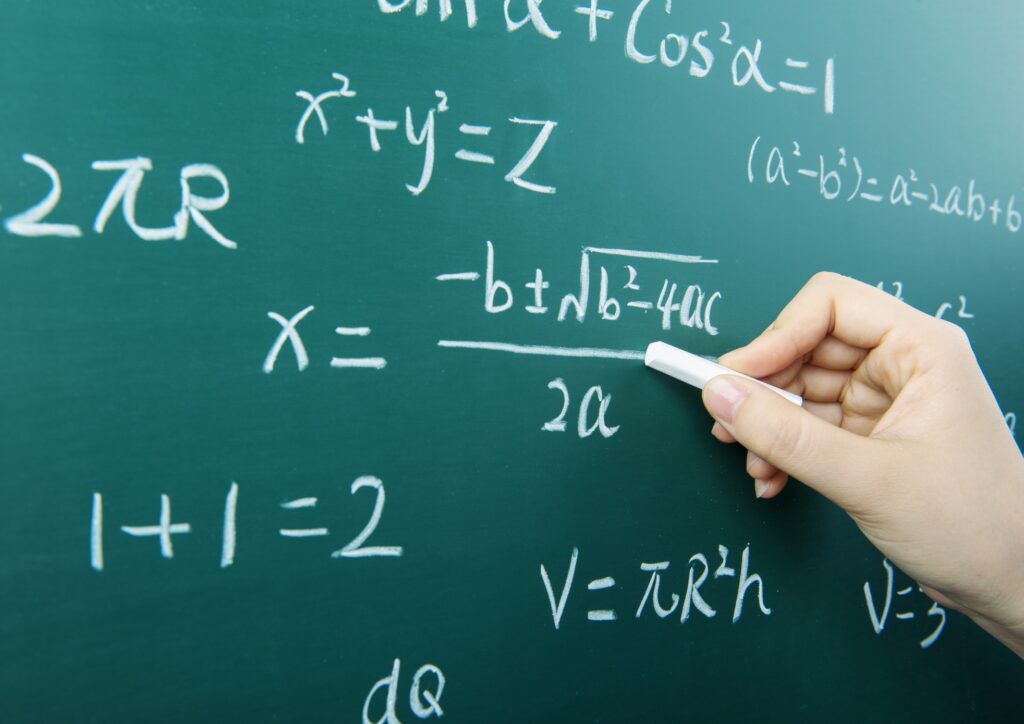Does it feel like the GCSE Maths exam is approaching faster than you can prepare? You’re not alone. Many students start to panic when they realise that the big day is just weeks away. But here’s the truth: achieving a top grade in less than two months isn’t impossible. With smart planning, the right mindset and effective strategies, you can absolutely get that 9.
This guide covers the biggest mistakes students make, how to study efficiently and proven techniques to help you reach your full potential in GCSE Maths. If you’re still finding certain topics challenging, consider working with a GCSE Maths tutor.
Common Mistakes to Avoid When Aiming for Top Marks
Avoiding simple errors can make a huge difference to your final grade. Here are the most common pitfalls and how to steer clear of them:
- Skipping topics
Maths is cumulative, meaning each topic builds on previous ones. If you skip a section or don’t fully grasp a concept, you’ll struggle with the harder material later. Make sure you review every GCSE Maths topic and fill in any knowledge gaps.
- Not practising enough
Practice is everything in maths. Without regular problem-solving, it’s easy to forget what you’ve learned. Aim to practise daily and review your work consistently. Try tools like the StudyX.ai maths solver for step-by-step solutions and interactive exercises.
- Overusing calculators
Calculators are useful, but they shouldn’t be your crutch. You still need strong mental maths skills for quick calculations. Practice doing sums and basic operations without a calculator to keep your arithmetic sharp.
- Forgetting to check your work
Many students lose marks due to small calculation errors. Always double-check your answers and review your working; a couple of extra minutes could save you several marks.
- Ignoring the exam format
Understanding the exam structure is key to success. Familiarise yourself with the question types, marking criteria and timing. The best way to do this? Go through past GCSE Maths papers and review the corresponding mark schemes.
Is a Grade 9 in GCSE Maths Really That Hard?
It’s challenging, yes, but far from impossible. Here are some study techniques that can help you get there:
- Do past papers: They’re the best way to understand question styles and identify areas for improvement;
- Use flashcards: Ideal for memorising formulas and definitions;
- Take regular breaks: Studying for too long can lead to burnout. A 10-15-minute break every hour helps maintain focus;
- Ask for help: Don’t hesitate to seek support from teachers, tutors, or online platforms;
- Use visuals: Diagrams and graphs can make difficult topics easier to digest;
- Try online mocks: Take free GCSE mock exams online to test your readiness and get constructive feedback.
Step-by-Step Study Plan for GCSE Maths
Managing your time efficiently is one of the biggest keys to success. Here’s how to stay organised and productive:
- Make a schedule: Create a detailed timetable with all the topics you need to revise;
- Prioritise difficult topics: Spend extra time on the areas where you struggle most;
- Limit distractions: Turn off your phone, log out of social media and find a quiet space to focus;
- Take breaks: Short breaks between study sessions can boost retention and motivation;
- Stay organised: Keep your notes, practice papers and materials neatly arranged.
Smart Exam Strategies
Knowing your material is one thing; performing under pressure is another. Here are some practical test-taking strategies to help you score higher:
- Read all instructions carefully before you start answering;
- Start with easier questions to build confidence and momentum;
- Show all your working, even if your final answer isn’t perfect, you can still earn partial marks;
- Use diagrams and graphs to support your answers where applicable;
- Attempt every question, even if you’re unsure; an educated guess might get you some marks;
Check your answers before handing in your paper to correct any mistakes.
How to Improve Quickly and Stay Motivated
Staying motivated during GCSE revision can be tough, especially when you’re juggling multiple subjects. Here’s how to keep your energy and confidence up:
- Set achievable goals: Break big goals into smaller ones and track your progress;
- Stay positive: Use encouraging self-talk and remind yourself of your progress;
- Reward yourself: Treat yourself to something enjoyable after finishing a tough study session;
- Visualise success: Picture yourself opening that results envelope and seeing your dream grade. It’s a powerful motivator.
The Best Resources for Revising GCSE Maths
You don’t need to study alone: there are excellent resources available:
- Past Papers: These help you become familiar with real exam questions and timing;
- Websites: Try platforms like Mathswatch, Corbettmaths and Hegarty Maths for video tutorials and quizzes;
- Apps: Khan Academy, MyMaths and Mathway offer interactive lessons and problem-solving tools;
- YouTube: Many GCSE Maths YouTubers share walkthroughs and revision tips, check out the top 10 channels for GCSE study;
- Textbooks: Don’t overlook traditional books; they’re great for reinforcing concepts and practising examples.
Combining a few of these resources will give you a balanced, well-rounded approach to revision.
Final Thoughts
Getting a grade 9 in GCSE Maths is an ambitious goal, but absolutely achievable with the right approach. Avoid the common mistakes, stay consistent and make use of the best tools available.
At Edumentors, our tutors have recently sat the same exams and now study at leading UK universities. They know exactly what it takes to succeed and can give you targeted, personalised support.
With focus, determination and the right strategies, you’ll give yourself the best possible chance of securing that top grade. Good luck, you’ve got this!
























2 Comments on "How to Get a Grade 9 in GCSE Maths: Tips, Mistakes to Avoid and Study Strategies"